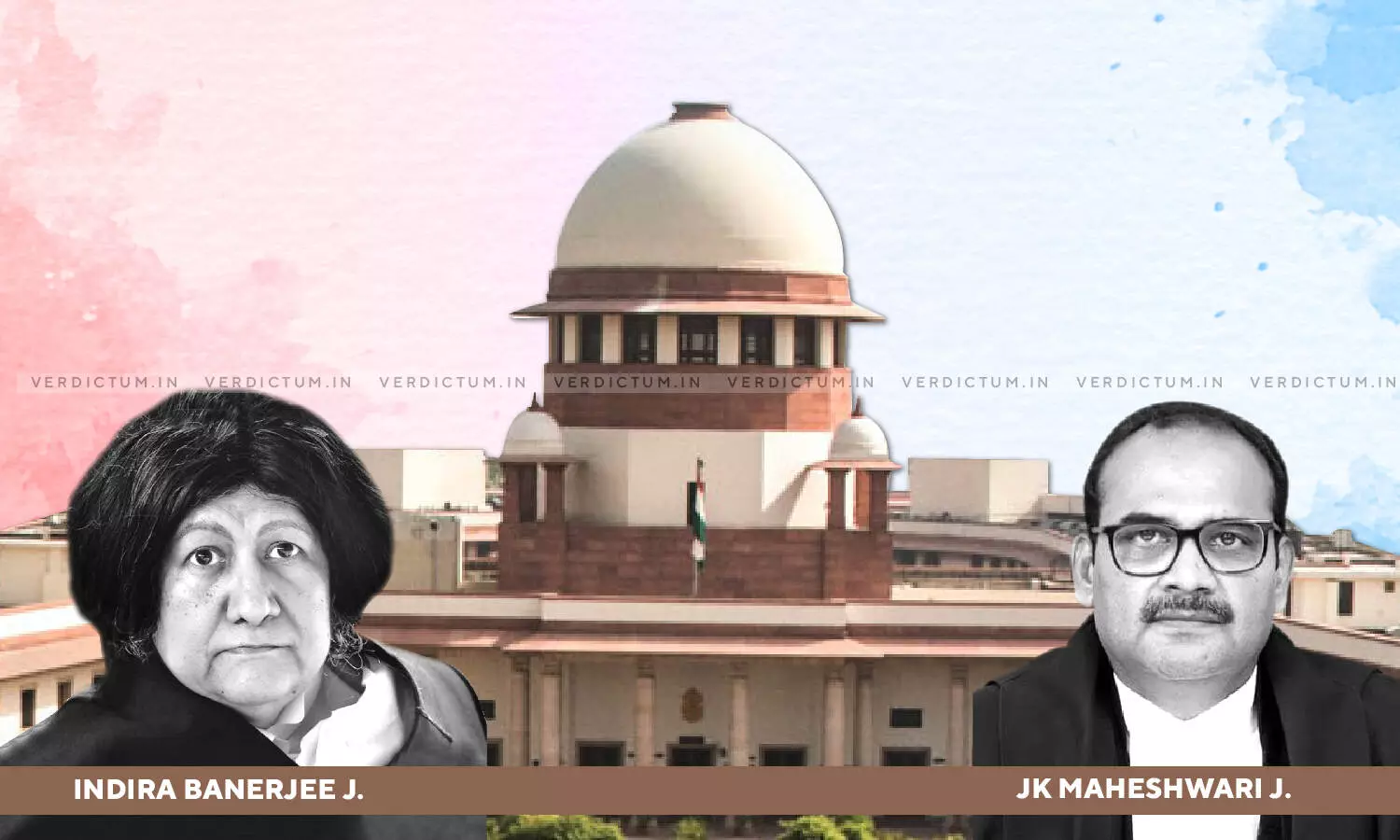
Pension Rules Capable Of Having More Than One Interpretation Must Be Interpreted In Favor Of Employee - SC
 |
|The Supreme Court's Bench of Justice Indira Banerjee and Justice JK Maheshwari has observed that when financial rules such as pension rules have more than one interpretation, Courts should lean in favor of interpretation favouring the employee.
"It is settled law that when financial rules framed by the Government such as Pension Rules are capable of more interpretations than one, the Courts should lean towards that interpretation which goes in favour of the employee.", the Court observed.
In this case, the Respondent was initially appointed as an Assistant Charge Man in the Rajasthan Agriculture Engineering Board, Department of Agriculture, Government of Rajasthan.
The Engineering Board was subsequently merged with the Rajasthan State Agro Industry Corporation. Accordingly, the services of the Respondent-Employee were transferred to the Rajasthan State Agro Industry Corporation.
Later he applied for the post of Assistant Director (Agro-Industries). He was appointed as Assistant Director (Agro-Industries), Department of Industries, State of Rajasthan.
While serving in the Department of Industries, he attained the age of superannuation and retired from the post of Additional Director of Industries, Headquarter, Jaipur.
However, while counting the length of service of the Respondent-Employee for the purpose of calculating pension and other retiral benefits, the State did not count the period for which he had worked for the Rajasthan Agriculture Engineering Board and the Rajasthan State Agro Industry Corporation.
Feeling aggrieved, the Respondent approached Rajasthan High Court.
The Single Bench held that the service rendered by the Respondent-employee with the Rajasthan Agriculture Engineering Board and the Rajasthan State Agro Industry Corporation, was liable to be counted, while computing his pension/other pensionary benefits.
The Petitioner–State filed an appeal against this Order before the Division Bench however the High Court directed the Petitioners to comply with the judgment and order passed by the Single Bench within 15 days.
Senior Advocate Manish Singhvi appeared for the Petitioner-state whereas Advocate Archana Pathak Dave appeared for the Respondent-Employee.
The Supreme Court observed that "There can be no doubt that resignation from service may entail forfeiture of past service. However, sub-rule (2) of Rule 25 of the Rules (Rajasthan Civil Services (Pension) Rules, 1996) carves out an exception. The said sub-rule clarifies that a resignation with proper permission to take up another appointment whether temporary or permanent, under the Government shall not entail forfeiture of past service."
On the contention of the State that there was no proof of prior permission before resignation from Rajasthan State Agro Industry Corporation, the Supreme Court noted that "The Respondent having retired after working for about 26 years, the Petitioner - State cannot raise the question of proof of prior permission before resignation, more so when the appointment had been made through the RPSC to a Government post. It is to be deemed that there has been disclosure of past service and the application has been made through proper channel by obtaining the requisite approvals."
The Court held that the High Court had made a just decision based on purposive interpretation of Rule 25(2) of the Rajasthan Civil Services (Pension) Rules, 1996 applied to the admitted facts on record.
Therefore, the Court refused to interfere with the High Court's Judgment.
Cause Title- State of Rajasthan & Others v. O.P. Gupta
Click here to read/download the Judgment